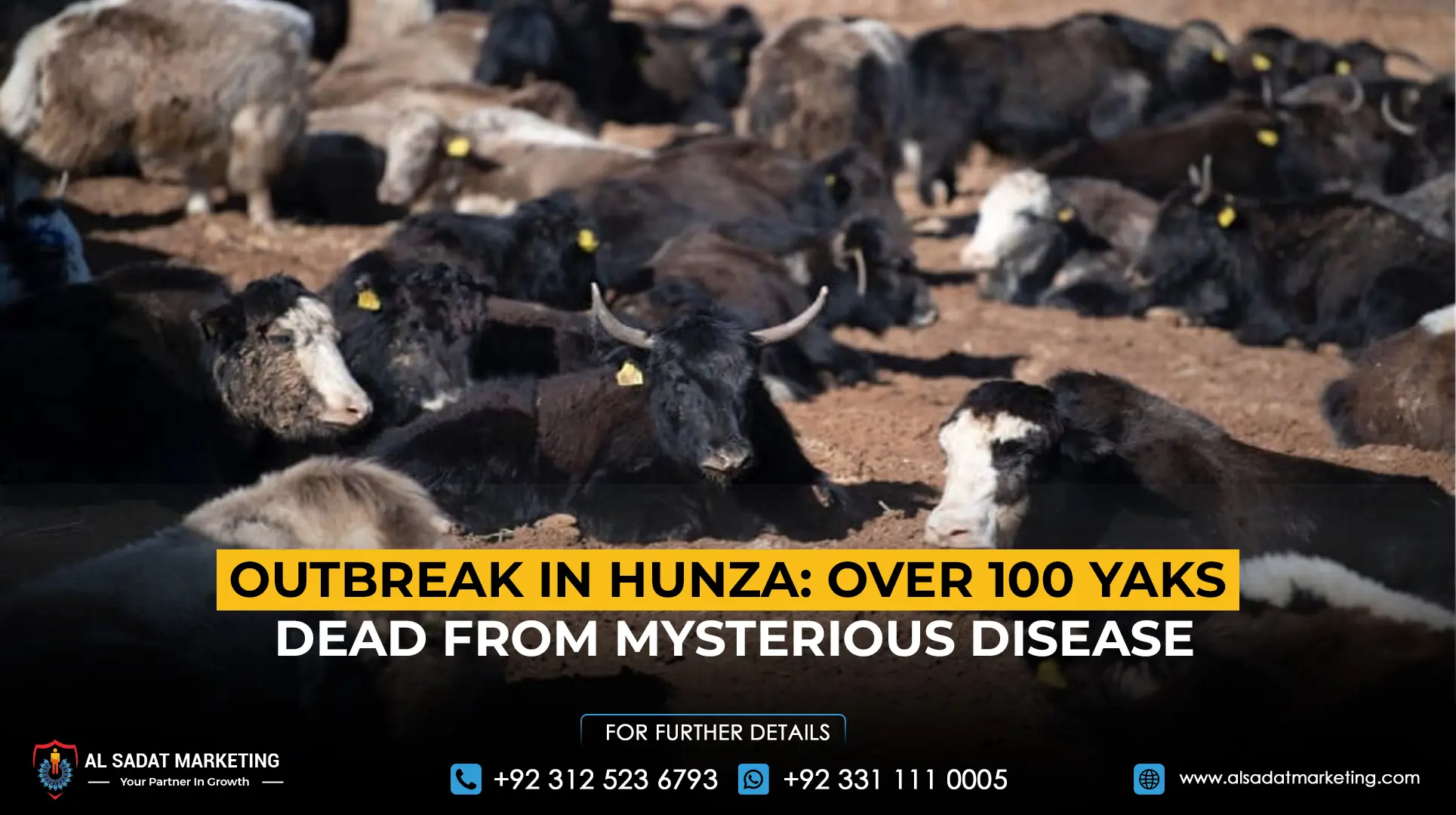A deadly disease has struck the remote Shimshal Valley in Pakistan’s Hunza region, killing more than 100 yaks and leaving many more seriously ill, according to worried locals. The mysterious illness is now threatening the livelihood of hundreds of families who rely heavily on yak farming.
The outbreak was first reported on May 5, and since then, panic has gripped the local population of over 1,600 residents. “We have lost so much. My two young yaks, worth Rs400,000, are gone,” said Azam Khan, General Secretary of the Shimshal Nature Trust.
Farmers are now calling for immediate government action to control the outbreak and save the remaining animals. “Out of my five yaks, three are dead. This is not just a loss of livestock—it’s a loss of income,” shared another affected farmer, Naimat Karim.
Also Read: India Finalizes Position on Asia Cup 2025 Participation
Located at 3,100 meters above sea level, Shimshal is the highest human settlement in Pakistan and lies near the Chinese border. For villagers here, yak herding is not only a tradition but a lifeline.
Government officials confirmed the crisis and said a special veterinary team had been dispatched to the area with emergency medicines. “It will take our team about three days to reach the pastures due to the rough terrain,” said Dr. Shehzad Arif from the Gilgit-Baltistan Livestock Department.
So far, 108 yaks have died, and at least 80 are currently infected. Experts say the exact cause of the disease will only be known after field diagnosis.
Dr. Shakoor Ali, a zoology expert, described yaks as “the coconut of animals”—valuable for their meat, milk, wool, and hides. “Without these animals, the local economy and culture could collapse,” he warned.










